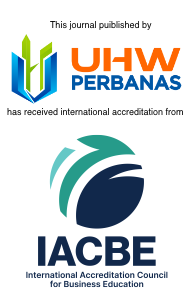The effect of personal cost, anticipatory socialization, and gender on whistle-blowing intention
DOI:
https://doi.org/10.14414/tiar.v7i2.1601Keywords:
Personal Cost, Anticipatory Socialization, Gender, and Whistle-Blowing Intention.Abstract
Fraud is difficult to detect because the doer attempts to cover up this unethical activity. The lack of experience in detecting fraud is one factor why the auditor could not predict any fraud. Whistle-blowing system could be the light to reveal the fraud in organization. This research is to socialize and educate the students that if there are fraud activities to be reported (whistle-blowing), they must consider some factors such as; personal cost effect, anticipatory socialization, and gender. The population of this research is Bachelor degree students of Accounting. The sampling method used is Convenience Sampling with 86 respondents of Bachelor’s degree students of Accounting chosen as the research sample. This research is classified in quantitative research with primary data source using ques-tionnaire measured with Likert scale. The analysis methods used are validity test, relia-bility test, classical assumption test, hypothesis test, and multiple linear analyses. The result indicates that (1) personal cost has a significant influence on whistle-blowing intention, (2) anticipatory socialization has a significant influence on whistle-blowing intention, and (3) gender has a significant influence on whistle-blowing intention.
Downloads
Submitted
Published
Issue
Section
License
Copyright (c) 2018 The Indonesian Accounting Review

This work is licensed under a Creative Commons Attribution-NonCommercial 4.0 International License.















